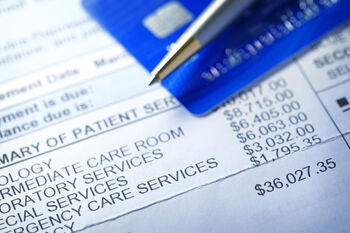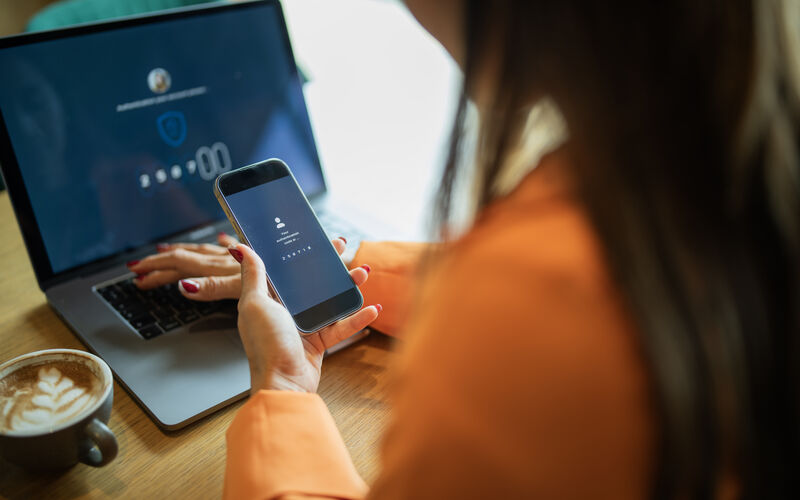Safeguarding Your Health and Privacy
Your health information is among the most personal data you have, from your medical history to your insurance details.
While Moffitt Cancer Center’s systems are protected under federal law, called the Health Insurance Portability and Accountability Act of 1996, and safeguarded daily by our Information Security team, protecting your information is a shared responsibility.
As a patient, you play a key role in keeping your data secure. By taking a few simple precautions, whether online, on your devices or even with paper records, you can help prevent theft, misuse or accidental exposure of your protected health information.
Here are some tips to help you keep your personal health information secure:
Use Patient Portals Safely
Online patient portals are a great way to view test results, schedule visits or send a message to your care team. To keep your account safe:
- Create a strong password that isn’t used for other accounts.
- Turn on two factor authentication if it is offered.
- Never use a shared or public computer to access a patient portal. If you do, always remember to log out of your account once you are finished.
- Moffitt’s online portals are audited and protected every day to ensure your privacy and protect your data.
Keep Your Devices Secure

Your personal phone or computer may actually hold health information locally without you knowing, such as in emails, apps or documents. You can protect your devices by:
- Setting up a screen lock or passcode.
- Keeping your software and apps up to date.
- Avoiding the use of “public” Wi-Fi for sensitive tasks, like checking your medical records. Wait until you get home and only use trusted networks.
Watch Out for Scams
Unfortunately, scammers sometimes pretend to be from a doctor’s office or insurer. Protect yourself by:
- Verifying requests for information. Your health care provider or insurer will not ask for sensitive data like Social Security numbers or full medical records by email or text.
- Avoiding clicking on suspicious links in emails or text messages claiming to be from a health care provider or insurer.
- Calling your doctor’s office or insurer directly if you’re not sure if a message is real.
- If you receive a call from a doctor’s office or insurance company and you are not sure if it is real, simply hang up and call them back.
Protect Paper Records

Not all health information is in an online format. Paper bills, prescriptions or old forms can also reveal personal details. Remember to:
- Store important papers in a safe place.
- Shred records you don’t need anymore.
- Be cautious when sharing copies of your medical records. Only provide them to trusted health care professionals.
Limit What You Share on Social Media
Oversharing about health conditions, providers or insurance details can unintentionally expose sensitive information. Keep your “health conversations” private and avoid posting documents, ID cards or prescription labels online.
Check Your Records and Bills
Looking over your medical bills or insurance statements can help you spot mistakes or even fraud. If something doesn’t look right, call your health care provider or insurer to ask questions and always:
- Check explanation of benefits from your insurer to ensure services listed match what you received.
- Request copies of your medical records periodically to verify accuracy.
- Report discrepancies to your health care provider or insurer immediately.
Remember: It’s OK To Ask!
You have the right to know how your health information is stored and used. If you’re ever unsure, just ask your care team. They are there to help you understand how your information is kept safe. You can:
- Ask your health care provider or insurer how your data is stored and shared.
- Ask for a “list of disclosures” if you want to know who has accessed your health information.
- Make sure to read over and understand consent forms before signing. If you are not sure about something, ask if it can be explained to you.
Protecting your health information is a team effort. Health care providers must keep your data secure, but you can get involved and take important steps to reduce the risks.
By following these tips, you can play an active role in keeping your health information safe and sound.
This story was written by Mark Fleeting, manager of Cyber Operations at Moffitt Cancer Center.




